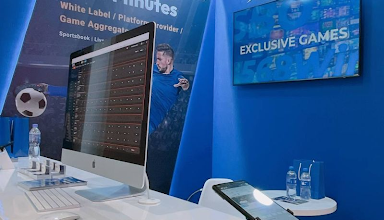
Money talks: how casinos track every penny you spend
Stepping into a casino feels like entering a world carefully designed to captivate and retain your attention. But beyond the flashing lights and ringing bells lies a hidden ecosystem fueled by data collection and psychological insights. One of the most powerful tools casinos use to understand and influence players is the player’s card.
At first glance, the player’s card seems like a simple way to collect loyalty points or gain access to perks. However, it acts as a key to an extensive profile on every player’s habits—tracking the games played, amount wagered, time spent, and even how often breaks are taken. This information is analyzed in real-time, allowing casinos to tailor experiences precisely to individual preferences.
Why does this matter? Because the better casinos Slot Gacor understand you, the more effectively they can keep you engaged. The complimentary drinks, free meals, or hotel stays you receive aren’t just random gifts—they’re carefully calculated investments. For example, if the system predicts that you might leave soon, a cocktail or a special offer might be presented to entice you to stay longer.
High rollers, sometimes called “whales,” are treated on an even more sophisticated level. Their every move is monitored, but unlike regular players, they receive personalized service, often behind closed doors. Luxury suites, private gaming rooms, dedicated hosts, and exclusive gifts are just some of the perks offered. Casinos weigh the potential revenue these players bring against the cost of such extravagances, ensuring they remain profitable while maintaining loyalty.
Online casinos have adapted many of these strategies for the digital age. Platforms featuring popular titles harness detailed user data, leveraging sophisticated algorithms to track player activity, optimize game offerings, and provide targeted promotions. The core principle remains the same: understand your player to keep them engaged.
সূচিপত্রঃ
Digital vs. real: the uncomfortable truth about online odds
The rise of online gambling has transformed the casino landscape. While virtual and physical casinos share many game types, subtle differences influence player experience and outcomes.
Take blackjack, a staple in any casino. Online versions frequently tweak payout ratios. The traditional payout for blackjack is 3:2, but some online platforms adjust this to 6:5, subtly increasing the house edge. Although this might seem minor, over time, it significantly decreases the player’s expected return. This tweak often goes unnoticed by casual players, but analysts and seasoned gamblers know its impact well.
Similarly, online slot machines aim to replicate the feel of their physical counterparts. But their operation relies on complex Random Number Generators (RNGs) programmed with specific Return to Player (RTP) percentages. These RTPs can vary widely between platforms, altering how frequently and how much players might win. The challenge for online casinos is balancing fairness to maintain trust, while optimizing their profit margins.
Live dealer games attempt to blend the best of both worlds: the convenience of online play with the social and tactile elements of a real casino. These games stream real dealers handling actual cards and chips. However, despite technological advances, they cannot fully reproduce the atmosphere of a buzzing casino floor, where the energy of other players, ambient noise, and sensory stimuli play crucial roles in the overall experience.
Players tend to spend more continuous hours gambling online, driven by accessibility and the absence of natural breaks. This raises important questions about how different environments impact player behavior and the overall gambling experience.
The security you never see: casino spies and their methods
Casinos are high-stakes businesses, and security is paramount. Beyond the cameras and guards visible to patrons lies an invisible web of surveillance and intelligence gathering.
Teams of specialists monitor every angle, looking for advantage players—those who use legal strategies, such as card counting, to gain an edge. Skilled personnel can spot suspicious behavior quickly, analyzing betting patterns, timing, and body language. Facial recognition technology has become increasingly prevalent, allowing casinos to identify individuals on watchlists or known cheaters immediately.
Despite the widespread belief that card counting is a relic of the past, it remains effective when done well. However, today’s casinos have responded by adjusting rules and increasing surveillance, making the practice risky and less profitable.
What’s remarkable is how casinos balance intense scrutiny with hospitality. Using AI and advanced monitoring tools, security teams discreetly track potential threats without making honest players feel watched or uncomfortable. This subtle approach is essential in maintaining a welcoming environment while protecting the business.
Slot secrets: what the machines won’t tell you
Slots captivate millions worldwide, with their colorful displays and tantalizing jackpots. But beneath the surface, these machines are carefully engineered psychological traps.
One powerful mechanism is the “near-miss” effect, where the reels land just shy of a jackpot combination. This illusion triggers dopamine release, fooling the brain into thinking a win was close, which encourages further play. It’s a clever manipulation of human psychology, exploiting our natural response to “almost winning.”
Progressive jackpots add another layer of complexity. These jackpots grow until won, often hitting at unexpected hours. While players might perceive these wins as random, they result from sophisticated algorithms ensuring the casino balances payouts to maintain excitement without excessive losses.
Slot manufacturers also design games to feel “almost winning” regularly, using sound effects, animations, and payout timing to sustain player engagement. The goal is to make the experience rewarding enough to keep spinning but not so generous as to jeopardize profits.
Casino culture: the unwritten rules nobody explains
Every casino has an unspoken social code that seasoned players know well. Navigating these customs can greatly influence the quality of your experience.
Tipping is an important aspect, often misunderstood by newcomers. While dealers appreciate tips, the amounts vary widely depending on location, stakes, and the player’s success. Typically, a tip of around 5-10% of winnings or a small token amount per hand keeps interactions positive.
Behaving respectfully at tables is crucial. Avoiding loud complaints, refraining from touching chips or cards improperly, and waiting your turn help maintain a friendly atmosphere. Dealers and staff often communicate subtly through gestures or code words to manage the floor smoothly.
Understanding this silent language helps players blend into the casino culture, ensuring they enjoy their time without awkward misunderstandings.
When the house loses: stories that make casinos sweat
Casinos are designed with an inherent advantage, but there have been remarkable exceptions that shook the industry.
However, success sometimes comes with a price. Many big winners find themselves banned or closely monitored, illustrating the delicate balance casinos maintain between fairness and profit.
These stories serve as reminders that even in carefully controlled environments, chance and human ingenuity can disrupt the expected order.
The future of gambling: what’s coming next
Gambling is evolving quickly, driven by technology and shifting player preferences. Skill-based Slot88 games are rising in popularity, blending chance with player ability and drawing parallels to video gaming culture.
Esports betting and virtual competitions offer new forms of engagement, attracting younger demographics who seek interactive and skill-oriented experiences rather than pure luck. Blockchain technology also promises to revolutionize transparency and fairness, though it introduces regulatory complexities.
While physical casinos remain valued for their social and sensory experiences, they increasingly incorporate digital elements. Hybrid models, where physical and online gaming intersect, are shaping the future.
Casinos are fascinating ecosystems where psychology, technology, and culture converge. Whether you prefer the tactile buzz of a casino floor or the convenience of online platforms with games understanding the layers beneath the surface enriches the experience beyond chance.





